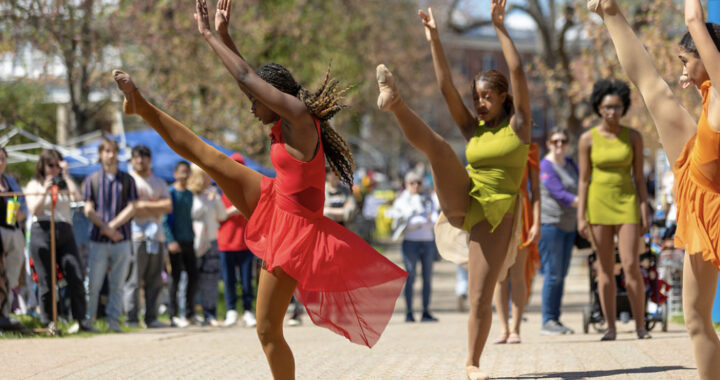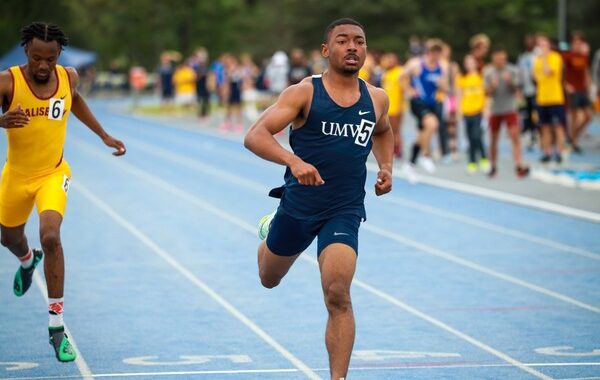Student athletes balance sports, school, and committing jobs
3 min read
Margot Brown teaching her cycle class at Sweat. | Margot Brown
By: Victoria R. Percherke
Sports Editor
Student-athletes are responsible for getting their school work done, balancing practices, attending weight room sessions and competing in competitions amongst other behind-the-scenes work. However, some of these student-athletes not only juggle the commitment of their sports—they also have off-campus jobs.
According to the National Collegiate Athletic Association (NCAA), “Social interactions and relationships often take a back seat to the athletically related challenges and commitments.”
Senior soccer player and business marketing major Margot Brown works as a cycling instructor at Sweat, a fitness center located in Central Park.
“I am still in the process of figuring [out my schedule],” said Brown. “I play a fall sport, so [last spring] I had a lot of free time to just focus on school and teaching. Now that I am in season, I am picking up a few classes here and there. After my soccer season, I will be back full time.”
While Brown has a busy schedule, she reassures herself by stating that her “work” is her workout outside of soccer. Brown also added that she is an organized planner, so having a job doesn’t stress her out as much as some would assume.
“There are those moments where I get into a little bit of a panic about having too much on my plate or face obstacles that control my thoughts and feelings,” she said. “Yet, in those situations I like to think optimistically about how minor this ‘panic’ is compared to what it could be.
A recent article from Edvisors suggested that off-campus jobs require much more time than an on-campus job would require because of transportation, minimum requirement of working hours and employees who may not understand the stress of not only college, but competing as a college athlete.
Senior swimmer and art major Emily Warren currently works at Sushi Kola, a sushi restaurant located in Central Park. Warren said that although that she is easily stressed by the demands of her busy schedule, having a job is absolutely necessary when saving for a future home, school loans and the possibility of graduate school.
“Working, swimming and school is definitely tough,” said Warren. “I am pretty exhausted all the time and tend to always be running from one thing to another. My schedule is always hectic.”
The NCAA concluded that specifically student-athletes encounter a different type of stress-load than those who are not competing in a college varsity sport. This can often lead to mental illnesses that go unnoticed by the individual simply because the athlete is too busy to think about their own mental health.
Senior softball player and business administration major Caroline Bird is in the process of a year-long internship with Northrop Grumman where she works on program scheduling and program finance. This job particularly is paving the way to her future by introducing Bird to learning valuable skill sets that she would not learn on the softball field or the classroom.
“I’m making connections with high-ranking people,” said Bird.
The NCAA article suggests that collegiate athletes shouldn’t hide their athletic experience from the professional world because it will help the student stand out in a field of applicants.











